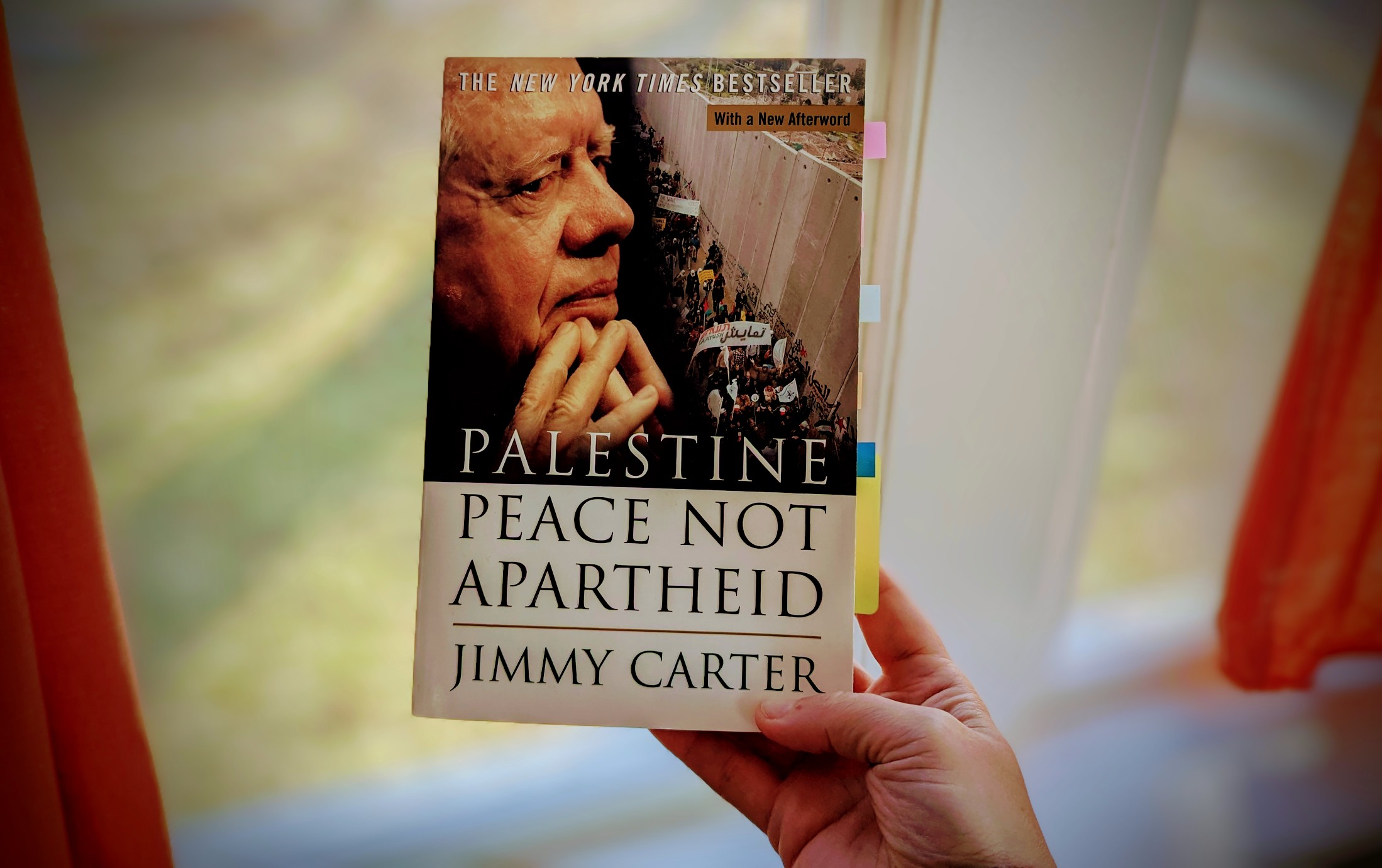This post is a long time coming. I finished “Palestine Peace not Apartheid” in late October and just haven’t been able to bring myself to write this review, because it is more than a review. With the continuing war between Hamas and Israel, with the bombing, the ceasefire talks, the dead children and the devastating reality in Palestine this all feels so small, because it is. This is small, but here goes anyway…
When I pulled “Palestine Peace not Apartheid” off of my bookshelf in mid-October, I had a minimal understanding and context for the ongoing conflicts, tensions and various wars between Israel and Palestine. I knew buzz words like Hamas, PLO, forced settlements, etc. and some of the names of various leaders, but when the Hamas/Israel war broke out I had to look up what the Hamas organization even really was; FYI, it is a political party in Palestine that has shifted from a moderate positioning to a hardline military organization and is classified by the US and European Union as a terrorist organization.
So when I cracked open Carter’s “Palestine Peace not Apartheid” I had no context or historical view for what was happening in Palestine. Carter’s book gave me a context, at least from 1947 until 2006 for many of the forces, policies and leaders who have been influential and many of whom Carter knew personally. This book was a primer and a helpful place to start with Carter’s colloquial, engaging writing style, reminiscent of visiting your grandfather and him telling you stories (because that’s what he’s doing). He speaks about and to the various social, political and global forces acting upon both Palestine and Israel and offers what I would call a compassionate framework for the multitudes of community pain and suffering. With that said, Carter is making a clear argument for the independence of Palestine and their right to govern themselves divorced from the Israeli State.
If you have no historical or political context for the relationship between modern Israel and Palestine, such as I had, I highly recommend this book as a place to start, but it can’t be the place you stop. It only dates to 2006 and even then, it is a particular perspective that doesn’t offer the more personal knowledge of people living in these geographical areas today. To stop here, sends the reader forth into the world with just enough information to be dangerous, yet with deeply outdated and I am sure in some cases, insufficient information.
So below are a couple of lists of additional reading that has come available in the wake of the Hamas/Israel war:
- https://drive.google.com/drive/folders/18u9KYo3MvRpyI0SDqD2AzseTvuSn3S8T
- https://www.versobooks.com/blogs/news/solidarity-with-palestine-free-resources-and-further-reading
This is a great deal of content to consume, so pick one (this is what I am telling myself). Pick one whose title connects for you for whatever reason and read it, then keep reading, keep learning, and keep speaking, even when it is a small small thing.
Hannah

